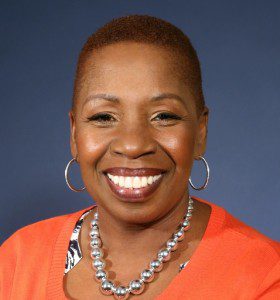“How can I ever trust you?” When I was first asked that question by a peer of mine after having a theological conversation, my heart sank into my stomach. As a blogger and an aspiring minister, trust is a big component. I want to, need to be trusted. It’s an essential part of the job description. “What do you mean?” I asked him. “Well, you always explain some theological position and then end your conversation by saying “And just so you know, I am not sure if I believe any of that.” How am I supposed to trust what you say if you don’t even believe it?” Then it clicked. I sighed a breath of relief and yet still was a little sick to my stomach. But I understood where he was coming from.
As Evangelicals, we live in a world that is founded on the concept of certainty. We often view the world in black and whites, in and outs, ups and downs. You’re either “a saint or you aint” as my old fundamentalist pastor used to preach. Our faith is built on “theological absolutes”, things that we must affirm as true in order to go to heaven when we die. We understand that our society is becoming increasingly secular and blurring the lines between right and wrong and so we feel the need to take a firm stand on all of our positions and have little room for doubt, discussion, or gray matter. Most of us find ourselves, deep down, affirming things that we’ve really never thought through. We say we believe things that we never have really examined for ourselves. But we have been told by our community what we are to believe and think and most of us don’t feel the need to question it. That’s just a slippery slope to false teaching, right?
The problem is that our world isn’t black and white. Nor is our faith. The Bible is filled with seemingly contradictory teachings and ideas on almost any theological topic you can think of. Church history proves to be a potpourri of ideas and beliefs that most of us would reject as modern day evangelicals. And one only has to open up the Yellow Pages to the churches section to see how many thousands of divisions and denominations there are within evangelicalism alone to understand that things aren’t as simple as they seem. But we all crave simplicity. Life is easier that way. Faith is safer. We can rest on our “absolutes” and on the comforting fact that we’re right and they’re wrong. That is a very happy place to be. When asked about theological questions, we found ourselves saying things like, “The bible is clear on this topic…” and then presenting our camps interpretation of biblical texts as if it is the only logical and true interpretation that this passage could possibly have.
But if we were to let down our guards for just a moment and examine ourselves, we would all find that even the most essential elements of our faith are often not as clear as we’d like to think they are. When we step back for a moment and hear other people out, we begin to realize that they are not demonic deceivers, but true followers of Christ who have differing opinions and beliefs based on biblical convictions that differ, sometimes severely, from ours. When we can be honest and say, “I am not really sure if I believe that…” we will find that sacred space is created where God can move us closer to himself and closer to one another. We begin to see that we may be looking at something from one angle but that there are multiple ways to view the same thing and all of them can be equally as valid. Now, I am not arguing for relativism here. I believe in absolute and objective truth for sure. I don’t think rational people could deny that reality. But I do severely doubt those who claim to have figured out what that absolute and objective truth is- because to do so would be to have comprehended God, which of course, is absurd.
The reality for me is that I have come to the place in my faith where I have to admit that I know very little. I affirm a number of things by faith, which precisely means that I don’t know if they are absolutely true. The very nature of faith is that it is a jump towards something that we can’t see clearly and can’t comprehend fully. And faith requires humility to admit that we may not be right. That other people may have a more solid perspective. And that maybe the answer isn’t found in “us” or “them”, but somewhere in between. Our faith should always be expanding, deepening, and changing as we seek to know and learn about our eternal God who transcends all things. We should be very nervous of people who claim to have it all figured out- simply because of what that means: they have figured out God. I recently interviewed a well known reformed pastor and asked him if his theology has changed since he had entered in to ministry nearly twenty years ago. His answer was simple: “No.” As I read his response, I was taken back. How can your “words about God” not have changed in twenty plus years?
But we are attracted to people like this pastor. People who can seemingly promise us certainty and answers. The problem is that this pastor doesn’t know all of the answers. He doesn’t have God figured out. And I am certain that he would never actually claim that he does. However, he would also likely never be willing to say, “I may actually not believe this…I may be wrong.” Because the implications of that are detrimental. When your understanding of salvation is based on believing a set of theological propositions, we are forced to kill any doubts or grayness that may arise and opt for the black and white answer. It soothes our souls to know that we are right. It makes discernment incredibly easy. It gives us a sense of confidence. Trust. But it also suppresses our ability to encounter the eternal, ever creative, untamable God. It keeps us from learning and delving in to the riches of his glory. It keeps us from understanding and unity with those who differ from us. It makes us liars- causing us to suppress our questions and doubts for the sake of acceptance.
Here’s the truth: I don’t know very much about God. And that makes many very uncomfortable- shoot, it makes me uncomfortable. I am writing a blog that has the potential to be read by thousands of people from around the world- what if I’m wrong? What if I am “leading people astray”? To be honest, I really don’t worry about that. I know for a fact that on most things theological that I will be wrong. And the reality is, whether you accept it or not, so will you. Anyone whose theology doesn’t morph frequently- I am left to wonder what God they are pursuing? How can we pursue the One who is eternal and never have our finite theologies blown? When I lay down my head on my pillow each night, I rest in the faith that the God of the universe loves me, is guiding me, and is always giving me grace upon grace as I seek after him. And I believe the same is true for you. Our calling is to seek God, love one another, and to faithfully live by our convictions with strong and benevolent identities towards those around us- not bashing others with our “certainties” but in humility listening and proclaiming our understandings with grace and love. Because that is how change happens. That is how new life springs up. And that is what is really important after all.
But hey, I might be wrong….and that’s okay.















